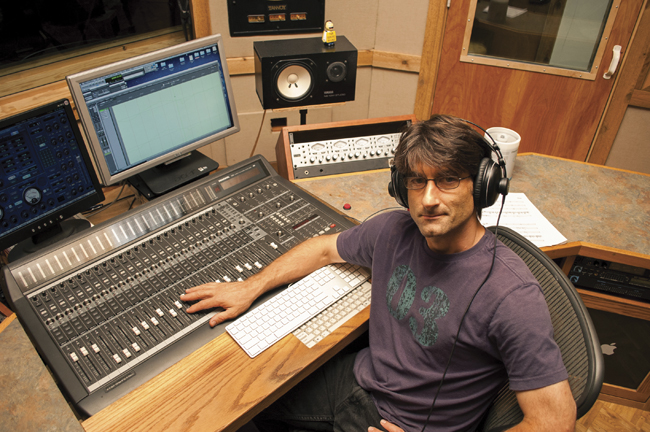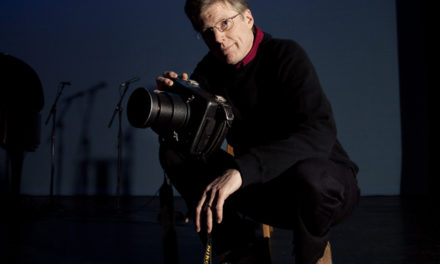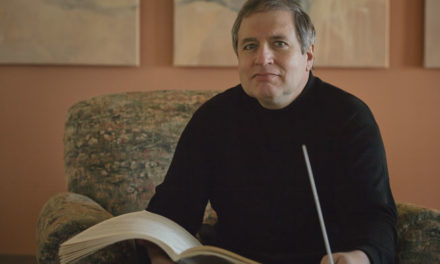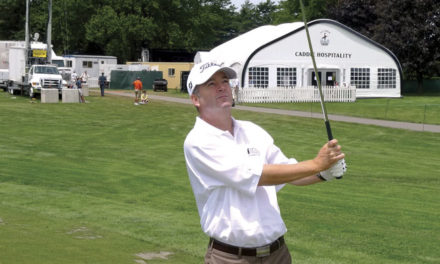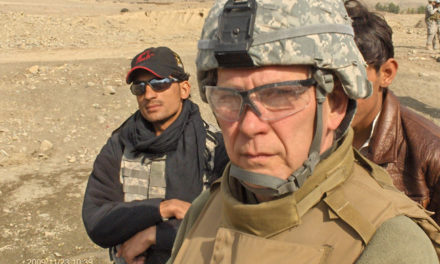BY JEREMY SHERE
When regional and national musicians inquire about recording in southern Indiana, one of the first names that pops up is producer David Weber, owner of Airtime Recording Studio. For the past 15 years, Weber has worked with many of the area’s best-known musicians—including his wife, singer/songwriter Krista Detor; choral composer Malcolm Dalglish; folksinger Carrie Newcomer; and the a cappella group Straight No Chaser—and he’s developed Airtime into one of the area’s premier studios.
“I’m driven by my own experience recording in other studios,” says Weber, 47, who played in bands throughout high school and college. “It can be a vulnerable thing for many musicians to go into the studio to record, so I see my job as being sensitive to their vision and helping them accomplish their musical goals.”
Weber took a circuitous route to becoming a professional producer. After spending the mid-80s in Boston trying to make it big with his band, Myriad Creatures, Weber moved to Bloomington in 1988 to take a job with the medical-device company Mectra Labs, owned by his then brother-in-law. Weber soon decided to return to school, enrolling at IU to study fine arts, audio recording, and Spanish. Upon graduating in 1993, at the age of 28, Weber joined Bloomington’s High Flyers Family Circus, a local troupe featuring trapeze and other aerial acts.
It was only after returning to Bloomington in 1996, after a stint as a trapeze artist with a rag-tag circus in Puerto Rico, that Weber began seriously exploring a career as a producer. Intrigued by the low cost and availability of digital recording equipment, he built a home studio and began recording local acts, including Dalglish, the progressive jazz group BeebleBrox, and the a cappella groups Monkey Puzzle and Vida.
“Working with such talented and high-quality musicians was very motivational,” Weber recalls. “It inspired me to create a better space and dedicate myself full time to recording.”
Much of Weber’s subsequent success has had to do with his intuitive and empathetic approach to producing music. “For me it’s foremost about the musicians, their music, and the creative process, not about microphones and amps and all the technical stuff,” he says. “The most important thing a producer can do is form a bond and close friendship with the musicians they work with. That’s what guides me in my work.”
Still the musician, Weber frequently performs with Detor, playing guitar and singing backup, and has written several songs with her.


